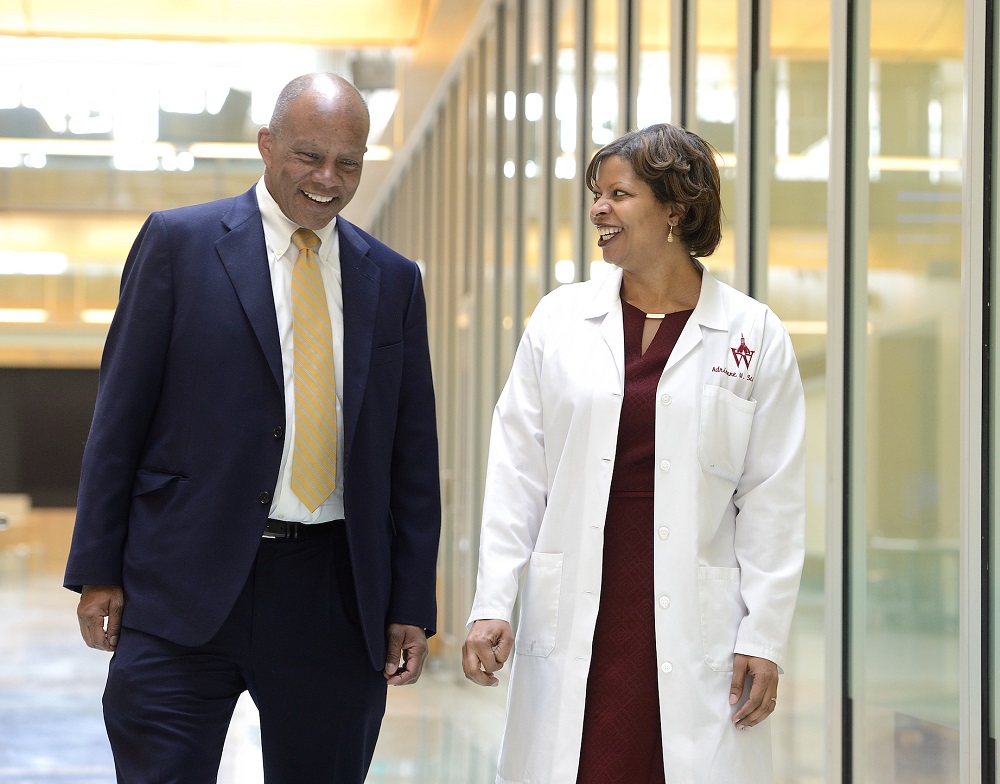Johns Hopkins UniversityEst. 1876
America’s First Research University
In the 1960s, Morton F. Goldberg, the Joseph E. Green Professor of Ophthalmology and Director Emeritus of the Wilmer Eye Institute, published the first classification of sickle cell retinopathy. That work, which Goldberg completed during his Wilmer residency, remains the standard half a century later.

Although technology has advanced considerably since then, its potential to diagnose sickle cell complications of the eye hasn’t yet been fully explored or incorporated into physician guidelines. Adrienne Scott, an assistant professor at Wilmer, wants to fix that. And a gift made by Howard Woolley — the husband of Scott’s late patient, Gail Campbell Woolley — is supporting that work.
“Nobody with sickle cell disease should lose vision,” Scott says. “We need to conduct the right studies, the right clinical trials to establish evidence-based guidelines on how we should screen sickle cell patients, what imaging tests can best identify those at risk for vision loss, and how early we should intervene with treatment.”
Because sickle cell disease affects blood flow, tissues that require a lot of oxygen, like the retina, become damaged over time. Scott is using new imaging tools to examine how and when that damage happens.
“We’re learning things about retinal circulation with a level of detail we were not able to identify before,” says Scott, who adds that Woolley’s gift also allowed her to hire a research coordinator to assist her with retinal imaging and sickle cell retinopathy studies while she maintains a busy clinical and surgical practice. Scott appreciates the financial support for her individual research goals, but she’s also inspired by the Woolleys’ commitment to sickle cell patients, who suffer from an often overlooked disease.
“This is a patient population that doesn’t often have many resources available,” she says. “The fact that both Gail and Howard had a passion to eradicate complications of sickle cell, and had the resources to support us philanthropically, is unique. I’m extremely grateful to have their support.”
Interested in supporting Hopkins faculty who are working to advance the treatment of sickle cell disease?
Topics: Friends of Johns Hopkins Medicine, Johns Hopkins Medicine, Fuel Discovery, Promote and Protect Health